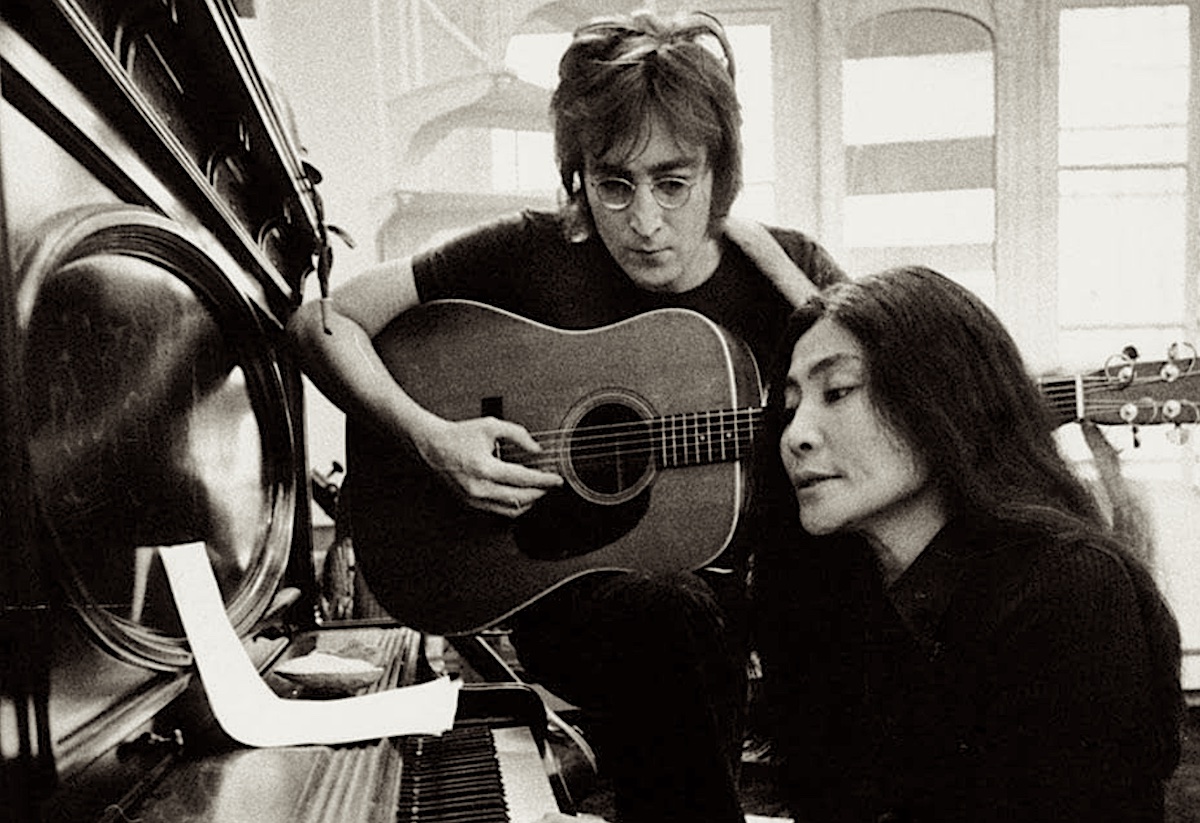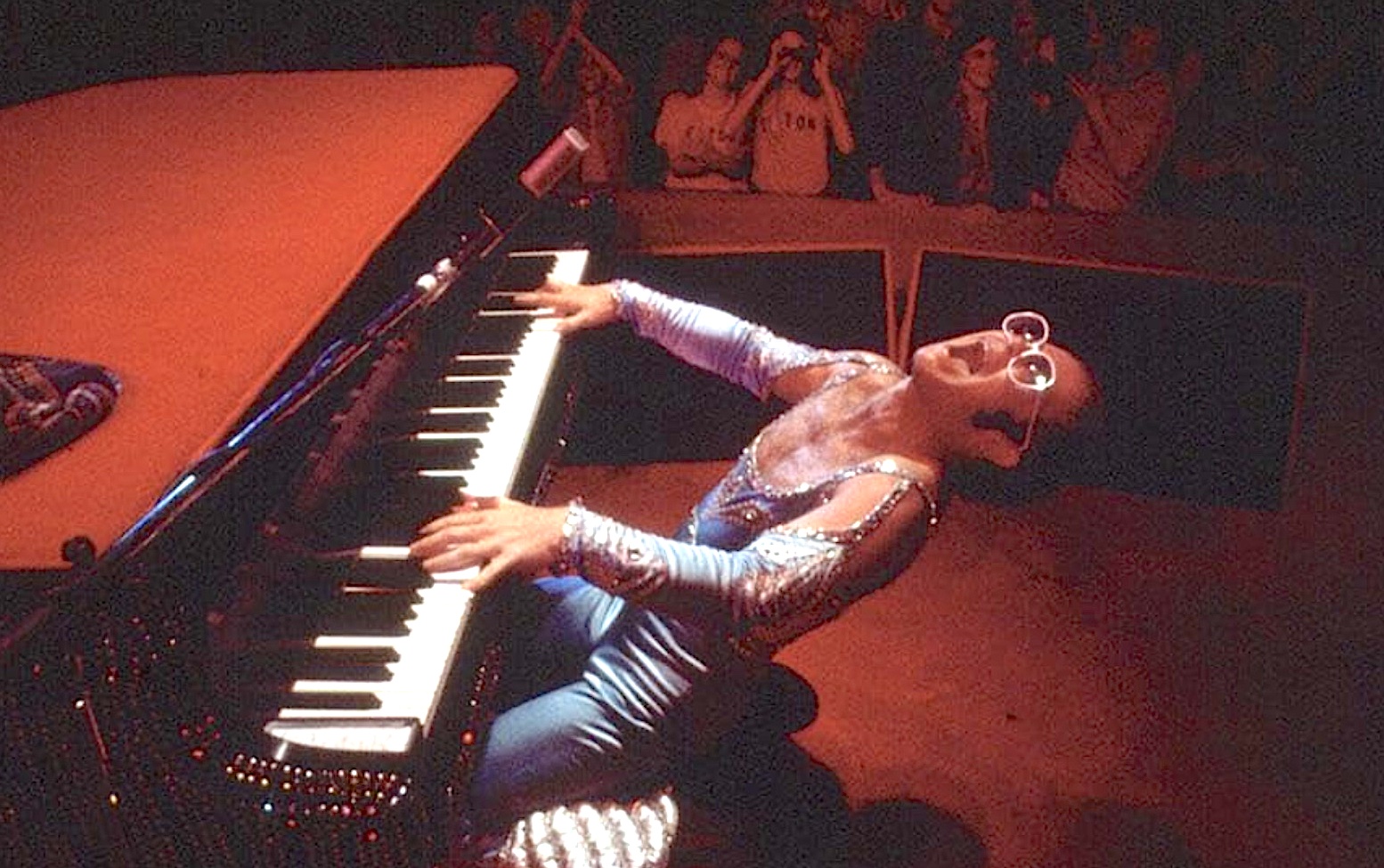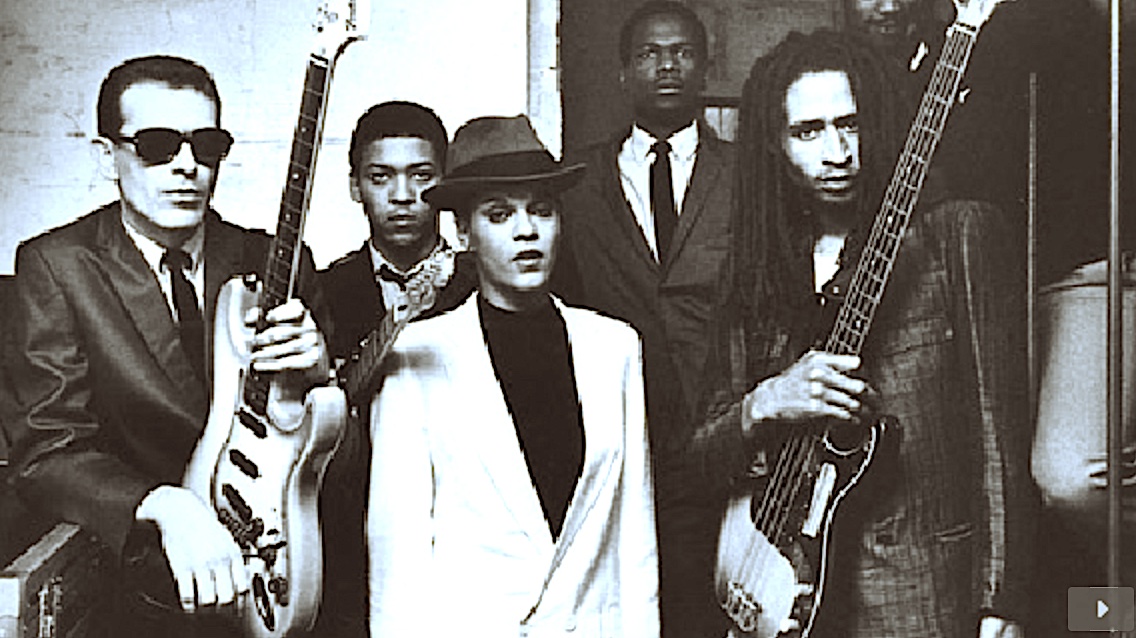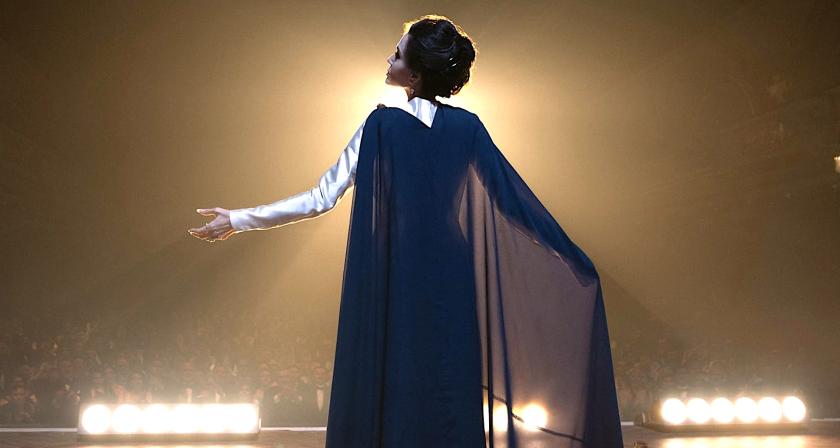Maria
How do you solve a problem like Maria? Pablo Larrain’s film picks up the daunting challenge of evoking the life but above all the myth of La Callas, one of a handful of opera legends who have broken the highbrow barrier to become truly universal figures. It pivots around a performance from Angela Jolie which stands a chance of elevating her from a mere movie star into something approaching greatness.
Larrain has invaluable support from Edward Lachman’s sumptuous cinematography, both monochrome and colour, while screenwriter Steven Knight (also the writer of Larrain’s Spencer) has been able to evoke the pain and regret that coloured Callas’s final days in Paris in 1977. He even manages to have a little fun while he’s about it, for instance when Callas asks her loyal butler Ferruccio (Pierfrancesco Favino) to book her a restaurant table where the waiters know her – “I crave adoration,” she tells him.
Callas’s Paris is bathed in a nostalgic autumnal glow, and she lives in a grand and spacious apartment which is more like the Louvre than a home, attended by Ferruccio and housekeeper Bruna (Alba Rohrwacher). She drifts through the days in a miasma of reveries and remembered triumphs, her senses altered by copious doses of Mandrax. It jars slightly when a film crew turns up on her doorstep and the interviewer is also called Mandrax (Kodi Smit-McPhee). As another great diva, Freddie Mercury, inquired, “is this the real life? Is this just fantasy?” No matter, since Mr Mandrax is merely there to pose the occasional question to move the story along.
Larrain gets a tremendous leg up from being able to deploy some of opera’s finest moments, and as a source of instantly available emotion it’s impossible to beat. Even your Ennio Morricones or Hans Zimmers are no match for Verdi, Puccini and Bellini, while scenes from a variety of opera houses are shot with opulent grandeur. The painful beauty of the music counterpoints Callas’s recollections of her relationship with Ari Onassis (Haluk Bilginer) and her brutal girlhood experiences under German occupation in Greece, though Larrain makes no attempt to explore her important musical relationships with the tenor Giuseppe Di Stefano or conductors such as Victor de Sabata. But like the man said, “when the legend becomes fact, print the legend.”
 One to One: John & Yoko
One to One: John & Yoko
John Lennon and Yoko Ono moved to New York in September 1971, kicking off a post-Beatle life full of political banner-waving and a very different kind of music that seemed bizarre to many Fab Four fans. But directors Kevin Macdonald and Sam Rice-Edwards have assembled a fascinating mosaic of material, based around two concerts Lennon gave at Madison Square Garden on 30 August, 1972, that transport us back vividly to that uncertain, turbulent period of the early Seventies.
Where the Beatles had come to be seen as friendly, chirpy mascots of groovy Sixties Britishness, the weather now turned chilly as Lennon embraced the sharp end of the radical counterculture.
The concerts were to benefit the Willowbrook institute for children with intellectual disabilities, whose hideously medieval conditions had been exposed in a TV documentary. The shows featured the Plastic Ono Band and Elephant’s Memory playing rough and muscular versions of “Cold Turkey” and “Come Together”, and a rip-roaring blast through Elvis’s hit “Hound Dog”. Lennon’s performance of “Mother” seems agonisingly heartfelt.
Away from the stage, many familiar faces pass before the lens, such as motormouth Yippy and Chicago Eight veteran Jerry Rubin, and AJ Weberman, infamous for rummaging through Bob Dylan’s garbage. With folk singer David Peel, Weberman created the Rock Liberation Front, which sought to keep rock stars true to the ideals of the Sixties.
Amid loads of priceless verité footage, there’s a scene where Yoko is on the phone to Weberman, trying to persuade him to give Bob’s garbage a rest because it’s pissing him off and she wants Bob for a benefit event. Weberman later pens Bob a penitent letter. Meanwhile, John and Yoko, who look effortlessly devoted to each other, join the successful campaign to get activist and MC5 manager John Sinclair released from jail (he’d been given 10 years for marijuana possession), prompting Lennon’s song “John Sinclair”.
The directors have framed all this with clips which evoke the wider political and social climate. There’s Alabama governor George Wallace claiming “I’m not a racist”, and footage of the shooting incident which left him paralysed. There’s a quick flash of Shirley Chisholm, the US’s first black congresswoman, nods to the Vietnam war and a reminder of Richard Nixon’s historic visit to China. We see the Attica prison riot which left 43 dead. And the Watergate scandal is just about to bring the sky falling in on the Nixon White House. Strange days indeed.
 Elton John: Never Too Late
Elton John: Never Too Late
Elton John has had more publicity than anyone could ever have needed, but nonetheless here’s a new full-scale documentary about Pinner’s most famous export. Directed by R J Cutler and Elton’s husband David Furnish, this one has a valedictory air about it as it uses the star’s appearances at LA’s Dodger Stadium as bookends. In 1975, Elton’s pair of shows at Dodger marked his arrival as the world’s biggest pop star (the last pop act there had been The Beatles in 1966), while in 2022 he returned to the venue for three shows which would be his last-ever US appearances (or so he says).
The 1975 event was a handy encapsulation of the absurd levels of success Elton had reached, and the catastrophic effect it was having on him psychologically. Having gathered friends and family at his Beverly Hills estate for the occasion, Elton swallowed a bucket load of tranquillisers and tried to drown himself in the swimming pool. “I had gone dark,” he comments.
The film’s account of his early years is much more interesting than the later years of cocaine and hyper-bloat. The young Reg Dwight was the rather sad product of a home wracked by parental arguments and divorce, and but found his escape in music. Describing his piano style as a mix of Little Richard, Jerry Lee Lewis and Winifred Atwell, he played piano in pubs, joined the band Bluesology and worked for a music publisher, and it was the latter who gave him a sheaf of lyrics written by a certain Bernie Taupin. The pair worked as jobbing songwriters until Elton launched his solo career, benefiting greatly from working with producer Gus Dudgeon and arranger Paul Buckmaster. The rest is hysteria.
Elton struggled with his sexuality and hadn’t had a relationship until he met John Reid in 1970, who also became his manager (his first impression of Elton was a “dumpy little guy in a funny jumpsuit”), but would become a prominent anti-AIDS campaigner and spokesman for LGBTQ+ rights and frequently hung out with politicians. But his fans (and everybody else, actually) already know all this, and Elton has given numerous tell-all interviews over the years. This is a competent effort, but hardly indispensable.
- Elton John: Never Too Late premieres on Disney+ on 13 December
 Pauline Black: A 2-Tone Story
Pauline Black: A 2-Tone Story
It’s a surprise to learn that Pauline Black, renowned as the singer in Coventry-based band The Selecter (pictured above), was born in Romford. However, as she recalls through metaphorical gritted teeth, her early years in Essex with her adoptive white parents (who’d picked her from an orphanage, though they’d really wanted a white child) were scarred by alienation and sexual abuse by a family “friend”. She made her escape by studying science at Lanchester Polytechnic, and then earning a diploma at the Coventry School of Radiography. She pursued music while working in the NHS, and was a founding member of The Selecter in 1979.
Black makes a pugnacious narrator of her own story in Jane Mingay’s film, recounting the progress of Jerry Dammers’ 2-Tone label and The Selecters’ hits. The band reached the Top 5 with their debut album, and "Gangster", "On My Radio" and "Three Minute Hero" were big hit singles. Yet there’s an underlying sense of simmering frustration. Black, in conversation with Rhoda Dakar of The Bodysnatchers, recalls that while 2-Tone was a kind of antidote to racism – this was the era when gigs were frequently besieged by sieg-heiling skinheads – male chauvinism was alive and well with the boys in the bands (Dakar cryptically describes it as “a sausage fest”).
Black subsequently reinvented herself as a TV presenter and actor, though she bemoans the lack of roles for black women. Happily, she found a new sense of identity when she tracked down her Jewish birth mother in Australia, and also discovered that she was a Yoruba princess via her father’s Nigerian ancestry. She now tours and records with a rebuilt Selecter, and received an OBE in 2022. If she’s not careful she’ll be mistaken for a member of the Establishment…















Add comment